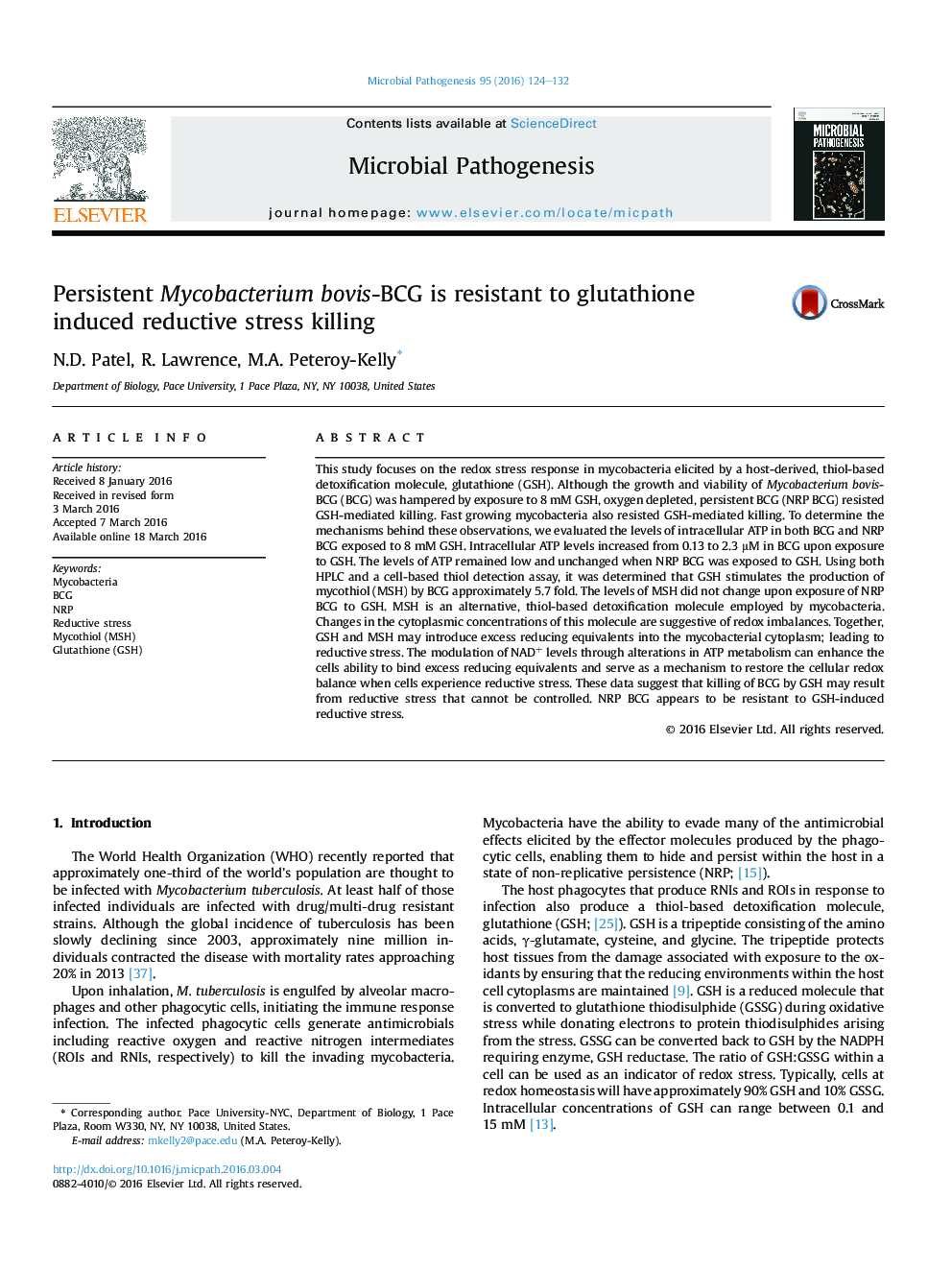| کد مقاله | کد نشریه | سال انتشار | مقاله انگلیسی | نسخه تمام متن |
|---|---|---|---|---|
| 3416248 | 1593694 | 2016 | 9 صفحه PDF | دانلود رایگان |
• Members of the genus Mycobacterium respond differently to redox stress induced by glutathione.
• Fast growing mycobacteria are resistant to GSH-induced toxicity.
• GSH-induced killing of Mycobacterium bovis-BCG, results from the induction of reductive stress.
• The persistent state appears to protect M. bovis-BCG from GSH-induced reductive stress killing.
This study focuses on the redox stress response in mycobacteria elicited by a host-derived, thiol-based detoxification molecule, glutathione (GSH). Although the growth and viability of Mycobacterium bovis-BCG (BCG) was hampered by exposure to 8 mM GSH, oxygen depleted, persistent BCG (NRP BCG) resisted GSH-mediated killing. Fast growing mycobacteria also resisted GSH-mediated killing. To determine the mechanisms behind these observations, we evaluated the levels of intracellular ATP in both BCG and NRP BCG exposed to 8 mM GSH. Intracellular ATP levels increased from 0.13 to 2.3 μM in BCG upon exposure to GSH. The levels of ATP remained low and unchanged when NRP BCG was exposed to GSH. Using both HPLC and a cell-based thiol detection assay, it was determined that GSH stimulates the production of mycothiol (MSH) by BCG approximately 5.7 fold. The levels of MSH did not change upon exposure of NRP BCG to GSH. MSH is an alternative, thiol-based detoxification molecule employed by mycobacteria. Changes in the cytoplasmic concentrations of this molecule are suggestive of redox imbalances. Together, GSH and MSH may introduce excess reducing equivalents into the mycobacterial cytoplasm; leading to reductive stress. The modulation of NAD+ levels through alterations in ATP metabolism can enhance the cells ability to bind excess reducing equivalents and serve as a mechanism to restore the cellular redox balance when cells experience reductive stress. These data suggest that killing of BCG by GSH may result from reductive stress that cannot be controlled. NRP BCG appears to be resistant to GSH-induced reductive stress.
Journal: Microbial Pathogenesis - Volume 95, June 2016, Pages 124–132
